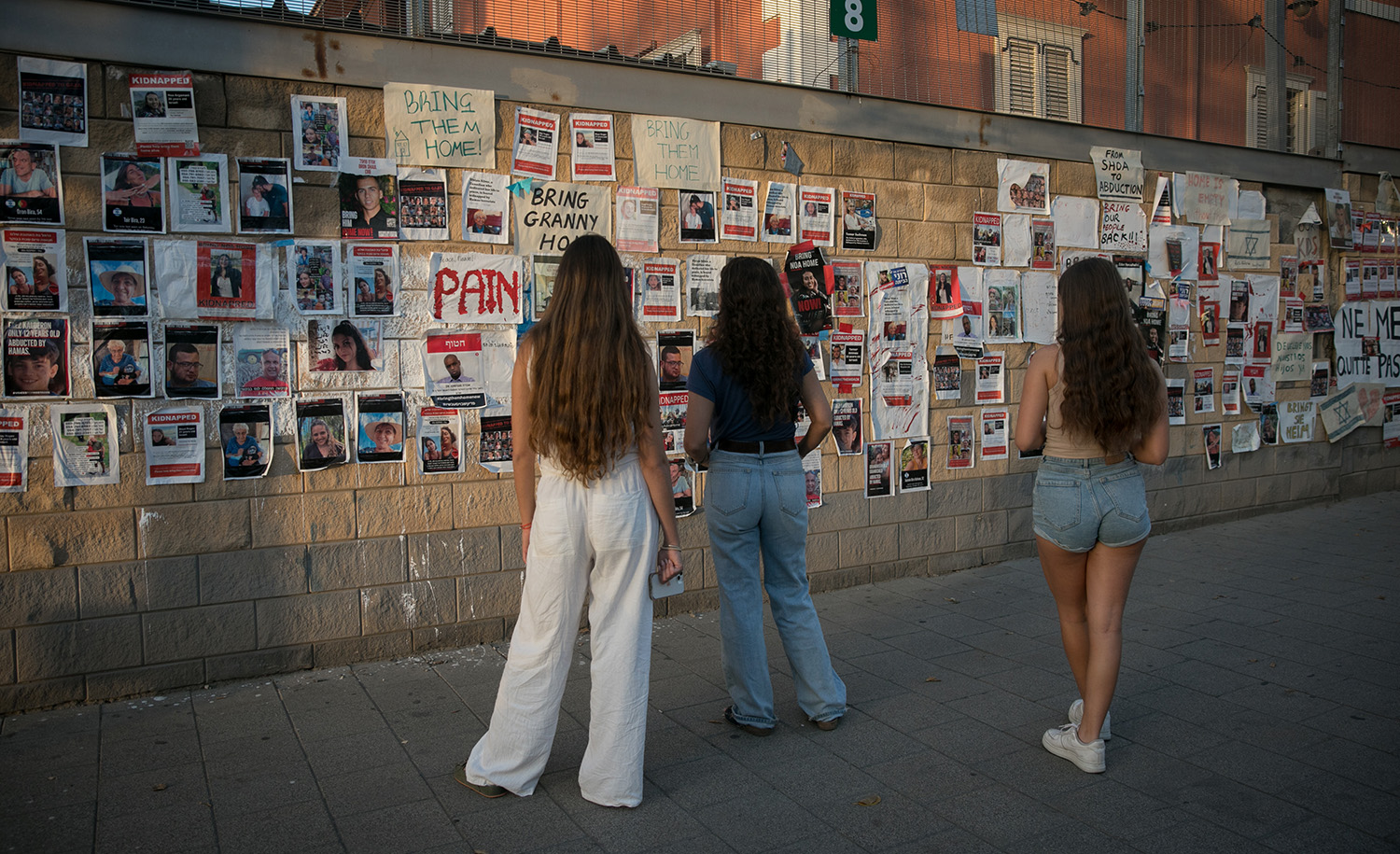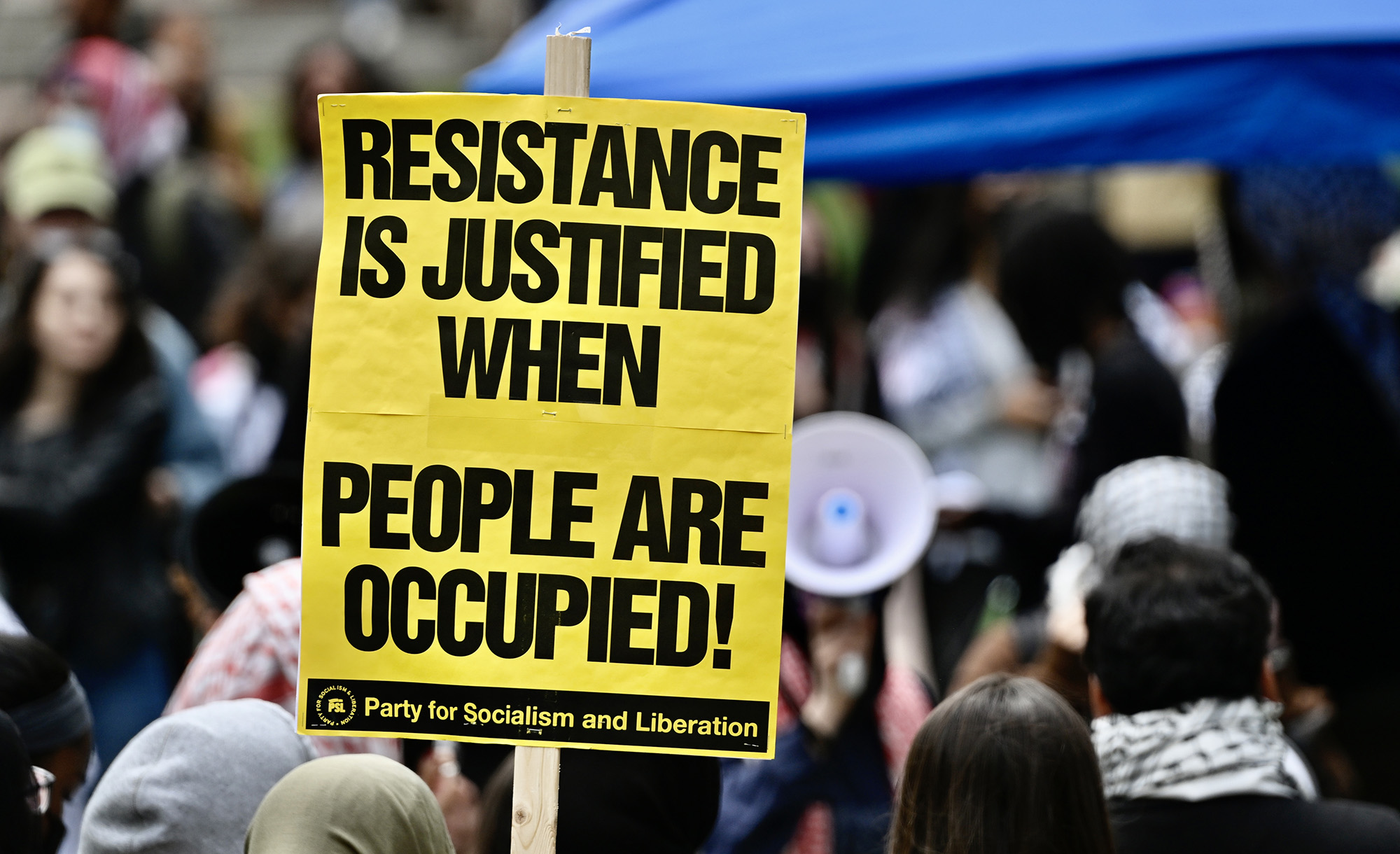Got a question for Philologos? Ask him yourself at [email protected].
“How are you?” a woman acquaintance wanted to know when I answered her phone call last week. “You needn’t answer that,” she went on before I could say a word. “I know it’s a question one doesn’t ask these days.” We then talked for a few minutes about the subject she had called to discuss. “Well,” she said when we were done, “b’sorot tovot,” and with that the conversation ended.
B’sorot tovot, literally “good news” or “good tidings,” might win the prize, if there were one, for Hebrew’s Expression of the Year. Rarely heard in the speech of most Israelis in the past, it has suddenly become a common way of saying goodbye—and if you find it strange that this should happen in a time and place in which there is so much bad news, that’s precisely the point. B’sorot tovot doesn’t really just mean “Good news.” It means “Let’s hope for good news, because right now there isn’t any.”
The expression is not a new one. It’s known to every observant Jew from Birkat ha-Mazon, the Grace after Meals, with its prayer of “May the Merciful One send us Elijah the prophet, may he be remembered for good, and may he bring us good tidings, salvation, and comfort [b’sorot tovot, y’shu’ot, v’neḥamot].” The text of Birkat ha-Mazon goes back to talmudic times, and Elijah in Jewish tradition is the harbinger of the Messiah and a bringer of solace to the downtrodden, so that the prayer is both for ultimate redemption and more immediate relief from trials and tribulations.
While b’sorot tovot, under the influence of Birkat ha-Mazon, occurs often in Jewish liturgical compositions, it is difficult to determine when it first became a spoken formula used in parting. The epistolary evidence, however, would seem to indicate that this did not happen until the 19th century, prior to which the words are infrequently encountered in correspondence. Thus, the 476 published letters of Nachman of Breslov (1772– 1810) feature the words only twice, whereas nine of the seventeen Hebrew and Yiddish letters of Rabbi Yitzhak Sternharz of Breslov (the son of Nosn Sternharz, Nachman’s secretary and the recorder of his stories), written to friends and family in Ukraine after he settled in Palestine in 1868, conclude with a sentence containing them. In a typical passage, Sternharz ends a letter to his children:
And with this I’ll bid you farewell. From your father, who prays for you daily and blesses you with every material and spiritual good and waits to hear and share b’sorot tovot with you and all our Jewish brethren.
Even more emphatically, in Sholem Aleichem’s epistolary novel The Letters of Menakhem-Mendl & Sheyne-Sheyndl, written in installments in the course of the 1890s, every single one of the main character’s many letters to his wife has in it (although in its opening rather than closing lines) the formulaic salutation:
First, let me tell you that I am, praise God, in the best of health. May the Lord always be there to help you, and may we always hear from each other only good things with b’sorot tovot, y’shu’ot, v’neḥamot.
And yet another Menakhem Mendl, the late Lubavitcher rebbe Menachem Mendel Schneerson, regularly ended his letters with Messianic anticipation by signing his name to the line, “He who waits for b’sorot tovot.”
In Ashkenazi Eastern Europe, b’sorot tovot was pronounced bsoros tovos or bsoyres toyves, and so it continues to be in the Yiddish-speaking world of haredi Judaism, in which not a few conversations end with it. On the whole, though, bsoros tovos is not in haredi Yiddish an all-purpose way of saying goodbye. (This is most commonly zayt gezunt, “Be well,” or some variation of it.) Rather, the tendency is for speakers to part with the words when expressing the hope for a happy outcome to some worrisome problem or concern. If someone is ill, lomir heren bsoros tovos, “May we hear good news.” If a bride has been trying to get pregnant, zol zayn bsoros tovos, “There should be good news.” If one of the conversation partners is in financial trouble, nor bsoros tovos, “[Let’s have] only good news.” Often this is shortened to just bsoros tovos—or, if the speaker is non-Ashkenazi or thoroughly Israelified, b’sorot tovot.
It’s easy to see why, given Israel’s current situation, b’sorot tovot should have made the leap from a haredi public to a general one that feels badly in need of consolation and hope. And yet while most secular Israelis never encountered the expression as a conversation-ender before last October 7, the process of its passing into general use began before that. Here is a December 26, 2022 text, humorous in tone but serious in content, from an Israeli blogger named Avi Goldberg:
Perhaps it’s a carryover from ancient times—from when Korach quarreled with Moses and ended up deep in the earth with his cohorts, or when [the northern kingdom of] Israel followed Jeroboam son of Nebat and left [the southern kingdom of] Judah to its own devices in the arid hills of Jerusalem. Or perhaps it’s just a continuation of the feud between Ben-Gurion and Begin, or between [the rival Israeli soccer and basketball teams of] Hapoel and Beitar, or between the fans of Messi and Renaldo. . . . To comfort themselves, in any case, the Children of Israel have replaced their classic parting formulas of “Okay, bye” and “Ciao” with b’sorot tovot, which more and more people are wishing themselves these days. This new locution has suddenly sprouted in a Canaan whose earth has been scorched by endless elections and the public melancholy produced by them.
Although Israeli Hebrew does have more indigenous ways of saying goodbye than “Bye” and “Ciao,” Goldberg’s testimony, posted on the Internet three days before the swearing in of the current Israeli government, reminds us that well before the events of October 7, Israelis longed for good news—and specifically, for an end to the civil conflict manifested in the deadlocked national elections of April and September 2019. Such fraternal quarrels, our blogger observes, go back millennia among Jews, who will find almost any excuse to fight among themselves when they are not distracted by having to fight their enemies. (What the latter never learn and have not learned this time, either, it seems, is to leave the Jews alone long enough to fight themselves to the finish.)
Sooner or later, there will be better times. B’sorot tovot!
Got a question for Philologos? Ask him yourself at [email protected].
More about: Hebrew, History & Ideas, Israel & Zionism







